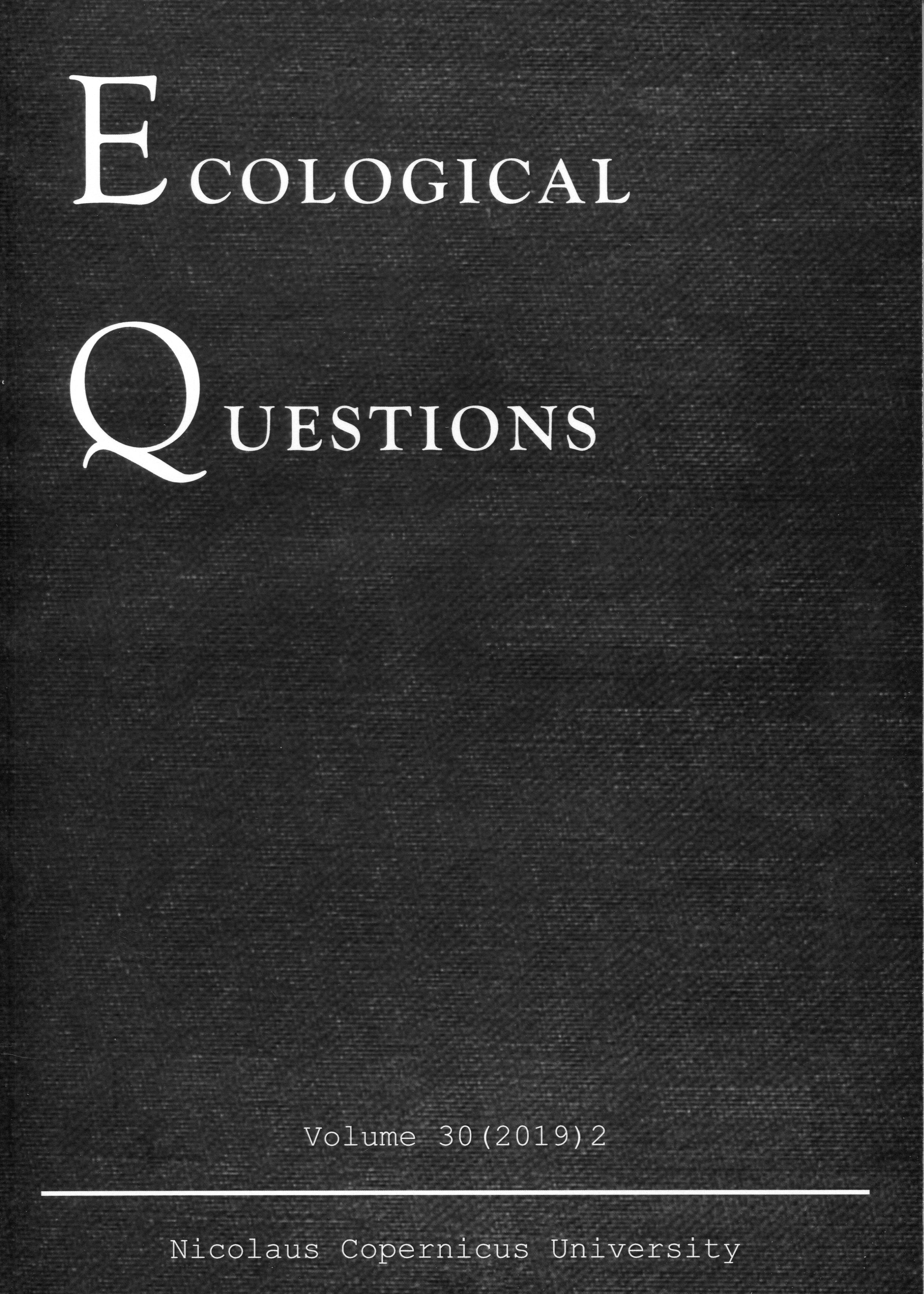Educating local people for nature protection especially with reference to endemic plants in Chitral-Pakistan (a case study)
DOI:
https://doi.org/10.12775/EQ.2019.014Keywords
rare plants, plant use, hotspot, questionnaire, local people, creating public awareness, Village Conservation Committees, local ecological impactAbstract
Chitral having unique geographical conditions thus supporting about 173 endemic plant species. These endemic plants are used for various purposes like medicinal, fuel wood, food etc. Apart from the exploitation climate change and other anthropogenic factors like land clearing, construction works etc. also pose serious threats to these plants. Thus conservation program initiated to aware the community as well as young people. The method used basically formation of “Endemic Plants Clubs” of school students and village conservation committees (VCCs) to assess the information through brochures, posters and meetings. The educational program covered 54 schools and a total of about 5000 students. Similarly 32 VCCs of about 67 villages were also taken on platform. Repeated awareness sessions with students and community supporting with multimedia were approached for whole year. The questionnaire survey was carried out randomly with 191 female and 197 male among community and students to analyze the effect of conservational education sessions. The assessment results indicate length of residence and education is more significant. Moreover detail feedback showed that priorities for approach to use natural resources vary among community and students. Most critical issue is fuel wood consumption along with use as vegetable or medicinal plants and needs to be readdressed in further session with alternative approachesReferences
Ali S.I., 2008, Significance of Flora with Special Reference to Pakistan. Pak. J. Bot. 40(3): 967-971.
Alvarado-Quesada I. & Hans-Peter W., 2017, International cooperation on biodiversity conservation when spatial structures matter. Spatial Economic Analysis 12(1): 1742-1772. (https://rsa.tandfonline.com/loi/rsea20).
Du Plessis M.I., 1995, The effects of fuel wood removal on the diversity of some cavity-using birds and mammals in South Africa. Biological Conservation 74: 77-82.
Feka N.Z. & Manzano M.G., 2008, The implications of wood exploitation for fish smoking on mangrove ecosystem conservation in the South West Province, Cameroon. Tropical Conservation Science 1(3): 222-241.
Ikurekong E.E., Esin J.O. & Mba A.C., 2009, Rural Fuelwood Exploitation in Mbo Local Government Area – A Nigerian Coastal Settlement. Ethiopian Journal of Environmental Studies and Management 2(3): 44-55.
Lutfi-Bin-Dolhalit M., Nur-Binti S., Salam A. & Bin-Abdul-Mutalib A., 2016, A Preliminary Study: The Availability of Multimedia Applications in Truancy Awareness. International Journal of Interactive Digital Media 4(1): 1-5. (ISSN 2289-4098, e-ISSN 2289-4101).
Khan N., Ahmed M., Siddiqui F.M., Bibi S. & Ahmed I., 2012, A Phytosociological Study of Forest and Non-Forest Vegetation of District Chitral, Hindukush Range of Pakistan. FUUAST J. BIOL. 2(1): 91-101.
Khanum R., Ahmed I. & Khan N., accepted, 2019, Conservation Assessment of Endemic Plants From Chitral (Regional Biodiversity Hotspot): Pakistan. Pakistan Journal of Botany (in print).
Report., 1973, Government of the North Western Frontier Province. Report of Dir, Swat and Chitral Land Disputes, ENQUIRY COMMISSION PART III Vol. I. Edited and published by Government of Pakistan, NWFP, Home, Tribal Affairs and Local Government Dependent, n.d.
Specht M.J., Pintoa R.R.S., Albuquerque P.U., Tabarelli M. & Meloc L.P.F., 2015, Burning biodiversity: Fuelwood harvesting causes forest degradation in human-dominated tropical landscapes. Global Ecology and Conservation 3: 200–209.
Downloads
Published
How to Cite
Issue
Section
Stats
Number of views and downloads: 644
Number of citations: 0



